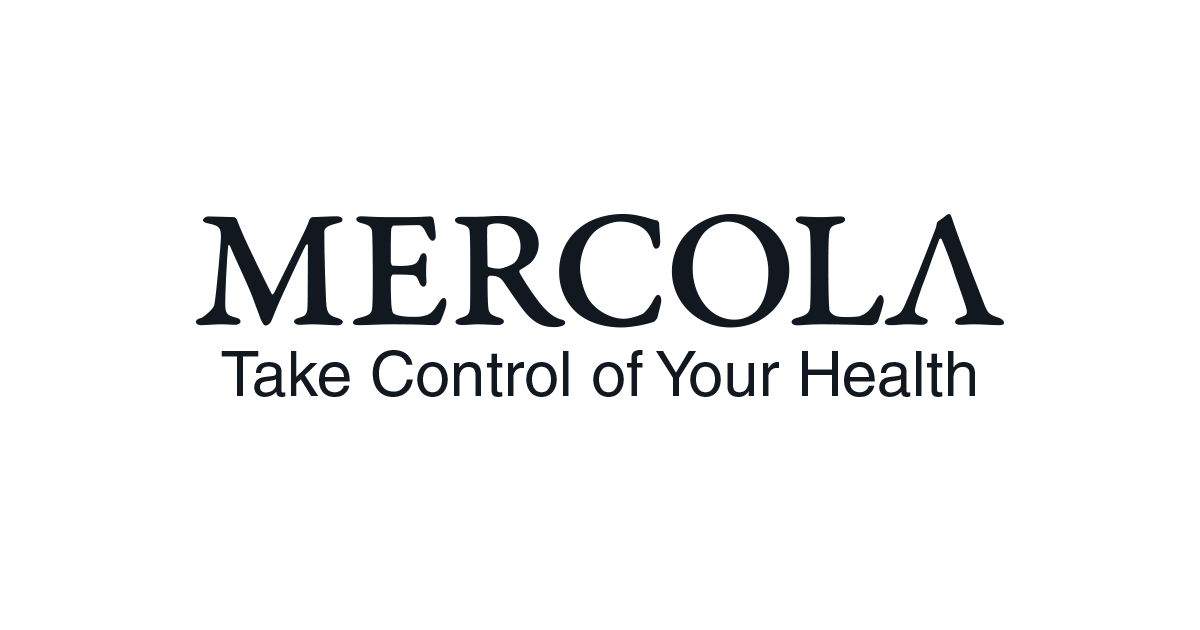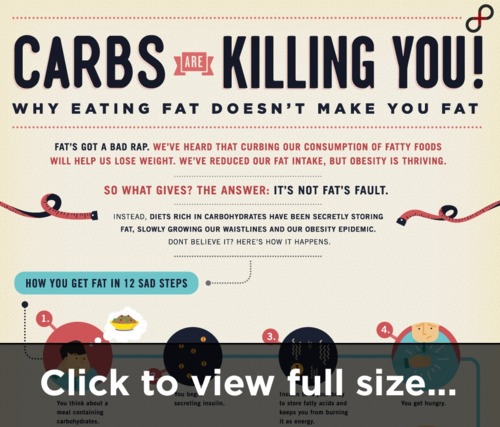By Dr. Mercola
Gary Taubes, a prominent scientific journalist and author of several books, has blown the lid off of several fallacies of conventional wisdom with respects to diet and health.
He gained his initial experience as a research journalist debunking the cold fusion theory in physics. He published his investigation in the premiere journal Science and showed the investigators had fudged their data. He then used the skills he learned on this endeavor to health.
It was over a decade ago that his groundbreaking article “What If It’s All Been a Big Fat Lie”1 suggested “eat less fat and more carbohydrates may be the cause of the raging epidemic of obesity in America.”
In the video above, Gary Taubes explains in very simple terms why the idea that weight gain is simply a matter of “calories in” versus “calories out” is just plain wrong… and why the real culprit is carbs in your diet.
Why Overconsumption of Carbs Fuels Weight Gain…
IMAGE COURTESY OF MASSIVE HEALTH. READ ABOUT THIS INFOGRAPHIC
This wonderful infographic, created by Column Five for Massive Health, is based on Gary Taubes’ book Why We Get Fat. It explains exactly why eating fat doesn’t make you fat – but eating carbs can kill you.
Overconsumption of carbs is the primary driving factor for insulin resistance and type 2 diabetes. Unfortunately, the conventional medical wisdom has unwisely been extolling the virtues of consuming massive quantities of carbohydrates for years, even placing them as the “foundation” of the highly flawed food pyramid.
If you are seeking to both lose weight and optimize your health, foods like bread, rice and pasta should comprise very low percentages of your diet. Virtually anyone who bought into these high-carb, low-fat dietary recommendations has likely struggled with their weight and health, wondering what they’re doing wrong.
The problem is that overeating grain and sugar carbohydrates can prevent a higher percentage of fats from being used for energy, and lead to an increase in fat production and storage. It also raises your insulin levels, which not only causes insulin resistance and can lead to diabetes, but is at the root of virtually every chronic disease known to modern man.
Insulin is an “Eat More!” and “Fat Storage” Hormone
Your body has a limited capacity to store excess carbohydrates. This is one of the reasons why elevated blood sugar follows their overconsumption. One of the ways your body avoids dangerously elevated blood sugar levels is through converting those excess carbohydrates into excess body fat primarily in your belly. (Interestingly, most other mammals are capable of converting excessive carbohydrates in the form of glucose into ascorbic acid.)
The way it works is that any carbohydrates not immediately used by your body are stored in the form of glycogen (a long string of glucose molecules linked together).
Your body has two storage sites for glycogen: your liver and your muscles. Once the glycogen levels are filled in both your liver and muscles, excess carbohydrates are converted into fat and stored in your adipose, that is, fatty, tissue.
But that’s not the worst of it.
Any meal or snack high in carbohydrates will also generate a rapid rise in blood glucose. To adjust for this rapid rise, your pancreas secretes insulin into your bloodstream, which then rapidly lowers your levels of blood glucose. The problem is that insulin is essentially a “storage” hormone, evolved to put aside excess carbohydrate calories in the form of fat in case of future famine. So, the insulin that’s stimulated by excess carbohydrates aggressively promotes the accumulation of body fat!
In other words, when you eat too much sugar, fructose, bread, pasta, and any other grain products, you’re essentially sending a hormonal message, via insulin, to your body that says “store more fat.”
This is actually a highly beneficial response in certain scenarios such as when calories are very scarce. This provides a major survival advantage – but for nearly everyone reading this, having insufficient calories is not an issue, so this protective mechanism actually sabotages your health. Increased insulin levels also:
- Make it virtually impossible for you to use your own stored body fat for energy.
- Suppress two important hormones: glucagon and growth hormone. Glucagon promotes the burning of fat and sugar. Growth hormone is used for muscle development and building new muscle mass.
- Increase hunger: As blood sugar increases following a carbohydrate meal, insulin rises with the eventual result of lower blood sugar. This results in hunger, often only a couple of hours (or less) after the meal, in a vicious endocrine rollercoaster that takes you from meal to compulsive meal without ever feeling satisfied.
It’s Not All About the Calories!
According to Gary Taubes, and I personally agree with this school of thought, the idea that you get fat only because you eat too many calories and don’t exercise enough is a deeply flawed dogmatic belief. As he said in our interview last year:
“The argument I’ve been making is that we’re making a fundamental mistake even thinking in terms of the calories. This is one of the places where the… obesity research community went off the rails. Heart disease research did it with dietary fat, and then that spread and affected everything else.
Prior to the Second World War, the European medical researchers had a different conception of what caused obesity. They said the human body, in essence, is very well regulated… Cells will not take up excess energy unless they’re signaled to do so. If you think about it, that’s what insulin does…
Hormones are out there to say ‘take up this, take up that because there is too much of it.’ So if there is too much fat accumulating in the fat tissue, that’s because the various factors in your body, the hormones, the enzymes, the central nervous system that regulate the uptake of fat by the fat tissue, and the release of fat are telling the fat to be taken up, and we got to figure what that is.”
All the signs are pointing to the fact that certain nutrients, namely carbs (fructose and grains) affect the hormone insulin and increase your body’s fat storage. And ever since the advent of processed high fructose corn syrup, the truth of what’s really causing the obesity epidemic is becoming ever more self-evident.
“White sugar (sucrose) is half glucose, half fructose. And high fructose corn syrup is 55% fructose, 45% glucose… The fructose is mostly, about 90-95 percent, metabolized in your liver. It’s fundamentally different. The pathway by which it’s metabolized is fundamentally different. The place at which it’s metabolized is different. It makes the liver do more work than just eating a starch, which will break down to glucose only,” Gary Taubes explains.
“…The phrase that [Dr. Robert] Lustig uses is ‘isocaloric but not isometabolic,’ which means you can have the same amount of calories from fructose or glucose, or fructose and protein, or fructose and fat, but you’re going to have an entirely different metabolic fate. And that metabolic fate is going to determine the hormonal response, and that hormonal response is going to determine, among other things, how much fat you accumulate.
So this idea that it’s only about calories, [and that] all calories are created equal; well, in terms of the energy in the calories, yes… But in terms of the fate of the nutrient downstream, entirely apart from the caloric content; the same amount of calories of different nutrients will have a dramatically different effect.”
If you’re under the impression that you don’t consume that many carbs in the form of fructose, check out the many hidden (and not-so-hidden) sources in our infographic below.
View the Infographic
Embed this infographic on your website:
Click on the code area and press CTRL + C (for Windows) / CMD + C (for Macintosh) to copy the code.
If Not Carbs, Then What?
When you cut carbs, you need to replace those calories with healthy fats (and to be clear, you don’t need to cut all carbs; carbs from most vegetables are quite healthy). Both carbs and fats are sources of energy, but healthy fats are far more ideal than unhealthy carbs. However, not just any kind of fat will do. The Atkins Diet is one popular example of a low-carb, high-fat diet that has helped many shed unwanted pounds.
Unfortunately, Dr. Atkins didn’t pay much attention to the QUALITY of the fats, so while his recommendations worked in the short-term, many who tried it ended up experiencing long-term problems.
Contrary to popular belief, saturated fats are actually good for you, and should be included in a healthy diet. Numerous studies have confirmed that saturated fat consumption is not associated with heart disease. On the contrary, it appears to be associated with improved heart health and decreased risk of heart disease. I and other nutritional experts believe most people need upwards of 50-70 percent healthful fats in their diet for optimal health, and this includes saturated fats.
It’s important to understand that your body requires saturated fats from animal and vegetable sources (such as meat, dairy, certain oils, and tropical plants like coconut) for optimal functioning, and if you neglect this important food group in favor of sugar, grains and other starchy carbs, your health and weight are almost guaranteed to suffer.
Fat is far more satiating than carbs, so if you have cut down on carbs and feel ravenous, thinking you “can’t do without the carbs,” remember this is a sign that you haven’t replaced them with sufficient amounts of fat. So go ahead and add a bit more healthy fats from the chart below.
Today, I believe it’s safe to say that most people eat far too many carbs and not enough healthy fats. Severely limiting carbs from fructose, sugars, and grains while simultaneously increasing your healthy fat consumption can be the U-turn you’ve been looking for if you are currently overweight and/or your health is suffering.
Olives and Olive oil Coconuts and coconut oil Butter made from raw grass-fed organic milk Raw nuts, such as, almonds or pecans Organic pastured egg Avocados Grass-fed meats Unheated organic nut oils
#Diet #Doctor #Loves #Gary #Taubes


